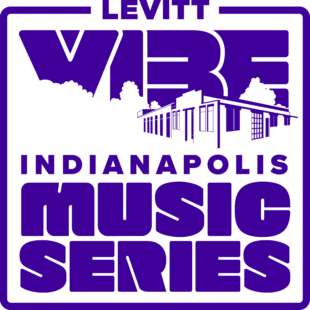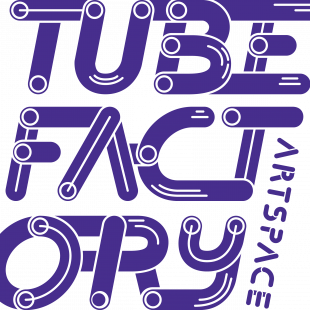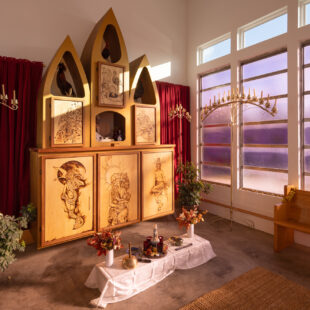November 2017-January 2018
On the South wall of the main gallery was Her Name Is Laura Nelson. It is Quilt I from The Lynch Quilts Project Series which explores the history and ramifications of racial violence in America, particularly lynching, through the textile tradition of quilting. Crowe Storm started the series 15 years ago. Her Name is Laura Nelson explores the intersection of lynching and gender violence.
In the North section of the main gallery was Be/Coming, the first in the series Masquerade Americana, a collaboration between Crowe Storm and Maria Eliza Hamilton Abegunde that began in 2007. This piece is rooted in the various masquerade traditions found throughout Africa, particularly Gelede (Gail-lah-day) and Egungun (Ay-goon-goon) of the Yoruba in Nigeria. Gelede celebrates female mystical power, while Egungun honors one’s ancestors.The Masquerade Americana series addresses historical and contemporary social ills and in/justices rooted in the American context from a Black / African-American lens.
Origin, in the west section of the main gallery, was a bronze casting of the pelvic bone of an unknown African American woman.
On the East wall was the poetry of Abegunde. The poems Be/Coming, Laura Nelson Speaks, Origin, and Birth Song were written specifically for the ongoing collaboration with Crowe Storm. The remaining poems, The Answer to Your Question and Supplication, are earlier works that call attention to the historical erasure and disappearance of young Black girls and women. Supplication is also a prayer to the Yoruba deity Osun that combines elements of oriki for Osun (praise names) with a plea for guidance to find, in this case, Tionda and Diamond Bradley who were reported disappeared/missing on July 6, 2001.
The writings and libation bowl added new layers to the experiences of remembering words and performances that examine how the abuse, loss, and commodification of one’s womanhood and humanity can be transformed through processes that lead to healing and the rebirthing and re/making of identity.
In the installation room was Sister Song, grounded within the context of community co-creation efforts, the bronze womb shapes were given to selected artists to complete their transformation.
Each piece exhibited in Keeper of My Mothers’ Dreams was developed with the hands of many.
Curated by Shauta Marsh
About Lashawnda Crowe Storm
If life were a photo, then Crowe Storm’s artwork would be its negative, seeking to explore those aspects in our society that have been ignored or forgotten such as history, lynching, misogyny, slavery and suicide. Her art is a form of social work and she uses it to open doorways to community dialogue, which is the first step to healing, which in itself leads to wider social change. Through her work, a voice is given to the marginalized people and disregarded aspects of our society.
About Maria E Hamilton Abegunde
Maria E Hamilton Abegunde is a Memory Keeper, poet, ancestral priest in the Yoruba Orisa tradition, and a Reiki Master. Her research and creative work respectfully approach the Earth and human bodies as sites of memory, and always with the understanding that memory never dies, is subversive, and can be recovered to transform transgenerational trauma and pain into peace and power. She is a visiting lecturer in the department of African American and African Diaspora Studies and the founding director of The Graduate Mentoring Center at Indiana University.
A series of events accompanied the exhibition:
December 3, 3-5 p.m.
BeComing Whole: It Takes a Village to Heal a Community
Artists featured in Sister Song discussed how the project developed and what it means to become whole through the process of making art that represents their own births. The artists shared why they accepted the invitation to participate, why they selected the “womb” that they did, how and why they selected the materials, what they learned about themselves in the process, and what was the most transformative part of their creation.
December 9, 3-5 p.m.
Artist Talk:LaShawnda Crowe Storm and Maria Hamilton Abegunde
How and why do a visual artist and poet come together to create new works through individual and community practices? What guides them to make art that could lead to community healing? Why do they view the community as an essential component of art making, resistance, healing, and transformation? Lashawnda Crowe Storm and Abegunde shared their history of art making and the potential of the arts to help individuals and communities heal from historical and personal traumas.
January 13, 3-5 p.m.
Afriye Wekandodis: Telling Our Stories to Be Free
Songs for Laura Nelson (Performance)
Singer, performer and Sister Song womb-maker, Afriye We-kandodis presented a two-part performance examining the themes present in Keeper of My Mothers’ Dreams. Sista Yo Mama U n Me Too shared the story of violation then reclamation and transformation as an enslaved woman grapples rape and how she spoke life into the spirit of a fellow tribesman who was used to violate her. Through the performance, I Am Laura Nelson she brought voice and life to Laura Nelson.
January 20, 3-5pm
Keeping our Mothers’ Dreams Alive
For many of us, our mothers never spoke their dreams out loud. Sometimes, they did not dare dream them. We, however, are the ones they waited and are waiting for. We also have our own dreams. The power of dreamtime and the word are this: to remind us who we are, to soothe our souls, and to create futures that break away from the past but do not forget them. The exhibition will ended with poetry readings, spoken word performances, and ritual to remember and gave gratitude to all our Mothers’ Dreams.
This exhibit was made possible by the Herbert Simon Family Foundation, Alan Mills and Sun King
Pictured: LaShawnda Crowe Storm,”Untitled”(2017), bronze casting of pelvic bone
Image courtesy of Polina Osherov and the artist.
LaShawnda Crowe Storm would like to thank the following:
Her Name was Laura Nelson
Listed below are the group of individuals were the first to join Crowe Storm on The Lynch Quilts Project journey. Nearly 14 years have passed since completing Quilt I, Her Name was Laura Nelson, and they are still here sewing, advising, supporting and bringing in new members steadily! Thank you!
Otis G. Grove
Arthur King
Marva King
Tamara T. LaVille
Sharon Matthews
Juline McClinton
Margaret Robinson
Pamela Tabor
Alexine Taylor
Patricia M. Williams
Be/Coming
Special thanks to the following community members whose creative contributions and spiritual energy breathed life into Be/Coming.
Tysha Ahmed
Beaded Medallion
Alice Berry
Fabric Donation
Luiz Andre Bispo de Jesus
Fabric Preparation and Beading
Carla Crowe
Hair Donation
Michelle Evans
Lok Donation
Denise Gause
Names for Poems
Otis Grove
Flying Geese Quilt Block
Tracie D. Hall
Fabric Donation
Ile Olokun Sanya Awopeju
Fabric Donation
Barbara Koenen
Fabric Preparation
Patricia Markham
Names for Poems
Juline McClinton
Bowtie Quilt Block
Carole Miller
Lok Donation
Toni Asante Lightfoot
Lok Donation
Margaret Robinson
Shoofly Quilt Block
Pamela Tabor
Crossroads Quilt Block
Veronica Schwartz
Crochet Fringe and
Names for Poem
Dana Smalley
Names for Poems
Kelly Spencer
Wig Construction
Alexine Taylor
Monkey Wrench Quilt Block
Gwen Watson
Fabric Donation
Trish Williams
Machine Quilting
Sheila Woods Stokes
Fabric Donation
Broadway Antique Mall
Antique Beads
Various Unknown Donors
Fabric for Wedding Canopy
Sister Song and Origin
Spring 2017 Casting Class at Indianapolis Art Center
Shauta Marsh
Alan Mills
Footage by Jeremiah Nickerson
Film by Kurt Nettleton



